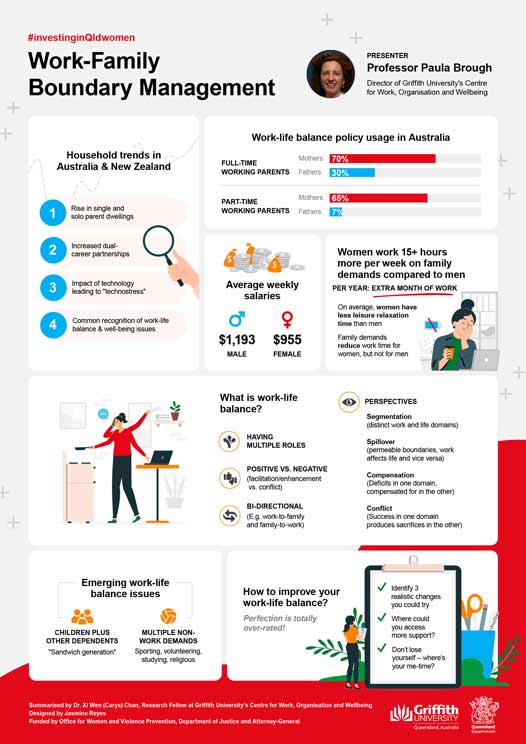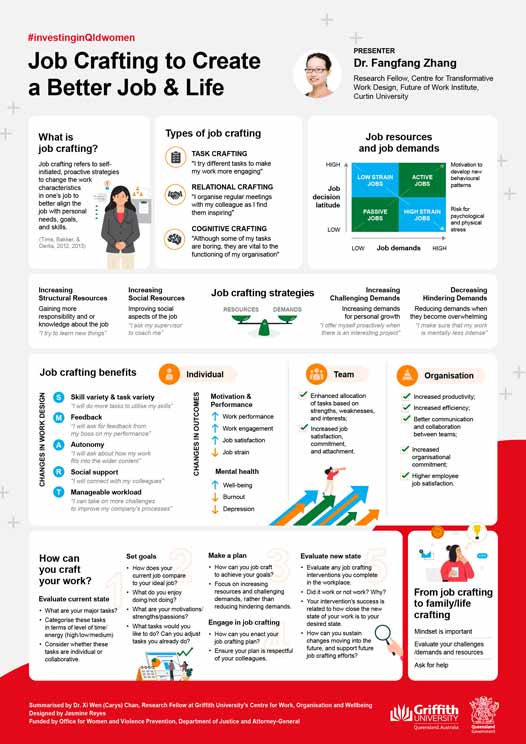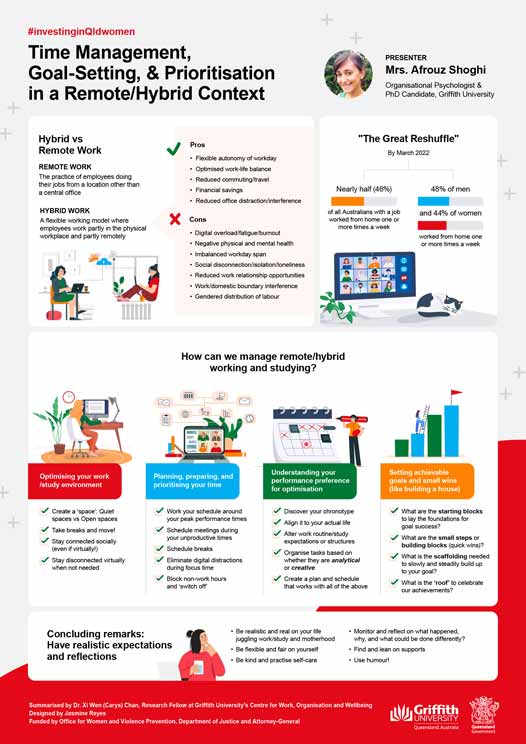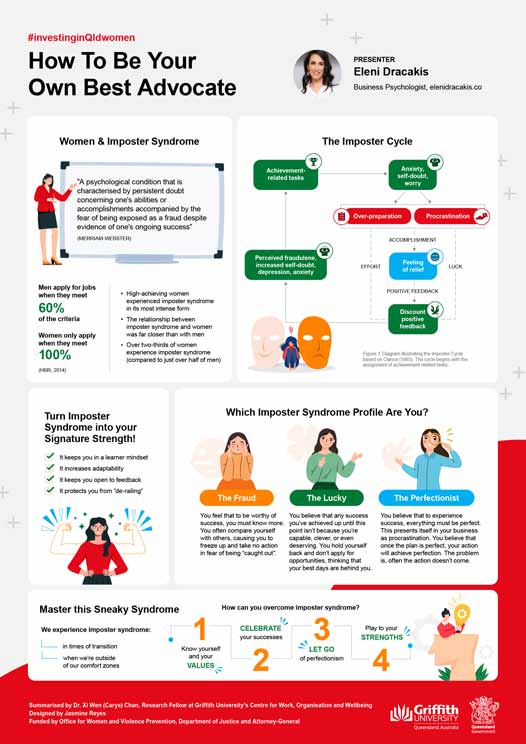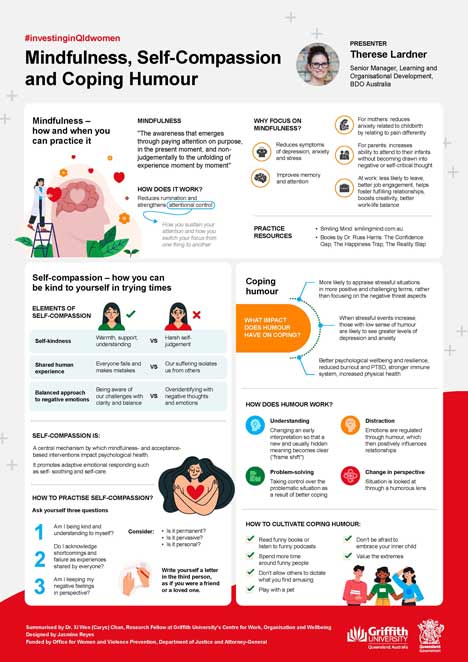Helping student-mothers with work-life skills while studying
While universities across Australia have sought to ensure their campuses and policies are more parent friendly, many student-mothers have provided informal feedback that these measures do not go far enough.
To address this, Dr Carys Chan designed a series of five online workshops, 'Supporting student-mothers: a work-life program,’ which sought to raise awareness and provide direct support to student-mothers completing their tertiary education, whilst engaging in paid work and caregiving concurrently.
The seminars
Supporting Student-Mothers: A Work-Life Intervention Program was led by Dr Carys Chan (with support from Professor Paula Brough, Sheetal Gai and Jasmine Reyes) in January–June 2022. The project was funded by Investing in Queensland Women Grants Program, an initiative by the Office for Women and Violence Prevention, Department of Justice and Attorney-General, Queensland Government. Over the course of six months, Dr Carys Chan organised five seminars for student-mothers or mothers-to-be within and beyond Griffith University to equip them with the skills and confidence to manage their work-life demands and achieve successful academic outcomes. Although the seminars were targeted at student-mothers or mothers-to-be, the seminars also saw many participants who were not mothers but generally interested to learn more about these skills. Dr Carys Chan also gathered data around working student-mothers' anticipated work-life conflict, and the results will soon be made available through various peer-reviewed journal outlets and the media. Below is a summary of each of the seminars.
Work-Family Boundary Management
Presenter: Professor Paula Brough
In this seminar, Professor Paula Brough drew on her 20+ years of research expertise and experience in work-life balance to share about the latest household trends and statistics in Australia and New Zealand. She then proceeded to discuss the ongoing gender pay gap, work-life policy "backlash" that women faced, as well as the invisible workload that women often take on. Paula also explained the different perspectives that people have about work-life balance, and talked about emerging work-life issues. Finally, she shared some practical tips on how women can improve their work-life balance.
Job Crafting to Create a Better Job & Life
Presenter: Dr. Fangfang Zhang, Curtin University
In this seminar, Dr. Fangfang Zhang drew on her strong research focus on job crafting and provided the audience with an overview of the different types of job crafting (i.e., task/relational/cognitive crafting) and job crafting strategies. She also discussed the benefits of job crafting for employees (which can be attained through changes in work design), teams/units, and organisations. Finally, Fangfang also listed step-by-step examples on how employees can craft their jobs, and shared practical tips on how to apply job crafting to family/life crafting.
Time Management, Goal-Setting, & Prioritisation in a Remote/Hybrid Context
Presenter: Mrs. Afrouz Shoghi, Griffith University
In this seminar, Afrouz shared about the latest facts and figures about the mass shift to hybrid/remote working caused by the COVID-19 pandemic. Drawing on her rich experiences in the industry as well as a student-mother to two young children, she also provided evidence-based examples on how student-mothers can manage remote/hybrid working and studying more effectively. Finally, she reminded student-mothers to have realistic expectations and reflections about juggling work/study and motherhood.
How To Be Your Own Best Advocate
Presenter: Eleni Dracakis, elenidracakis.co
In this seminar, Eleni drew on her rich corporate experience to share about how imposter syndrome sets many women back from advancing their careers or reaching their full potential. She also explained how imposter syndrome affects people's well-being and job performance, and called on women to turn their felt imposter syndrome to a source of strength. She also encouraged women to learn more about their imposter syndrome profiles (i.e., "The Fraud", "The Lucky", or "The Perfectionist"), so that they may learn to overcome the syndrome more effectively.
Mindfulness, Self-Compassion and Coping Humour
Presenter: Therese Lardner, BDO Australia
In this seminar, Therese drew on her organisational psychology training and industry experience to first share about how and when individuals can practise mindfulness. She then talked about self-compassion, specifically how women can practise self-compassion and be kinder to themselves during challenging times. Therese then ended off her seminar with a brief discussion of coping humour, which assists individuals to appraise stressful situations in a more positive light, rather than focusing on the negative aspects.
